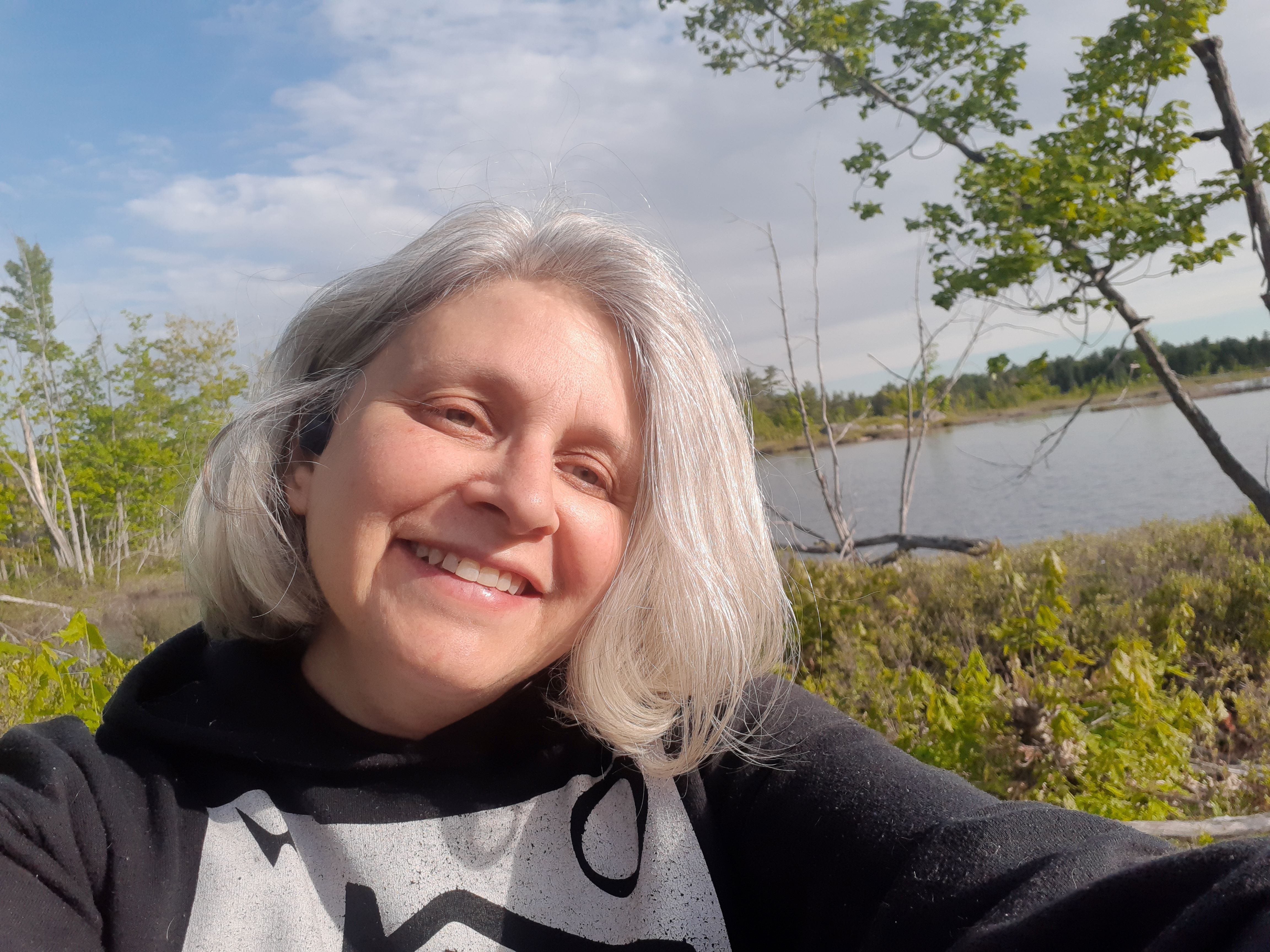
Sharon Lax is a teacher and author. Her collection of short stories, Shattered Fossils (2020), is available through Guernica Editions. She is ever grateful to the Canada Council for the Arts’ assistance in developing her latest collection of poetry that explores the loss we’re experiencing due to habit encroachment and global warming and looks at our commitment to each other in striving for a different possibility.
Sharon’s short fiction, poetry, memoir and nonfiction have been published in Vallum, The Dalhousie Review, QWF’s carte blanche, Montréal Sérai, Polar Borealis and Montreal’s The Rover. Her poetry appears in the League of Canadian Poets’ Lesley Strutt Memorial Chapbook and in their Poetry Pause newsletter. Sharon lives, walks and writes in Deux-Montagnes, QC.
First, I read some of my poems and a story that is shorter than what is referred to as a "postcard length" story.
Use of a sensory chart to give them ideas for descriptive words.
Using their own words in a poem or very short story of one line OR postcard-length story.
Workshop: I teach various kinds
#1 - Use of music to create a narrative, but only the beginning of one, using elements of the music to imagine a scene.
#2 - Use of a sensory chart to create descriptive language.
#3 - Transformation story:
Students think of an item at home that they consider precious, then choose a character (who's involved in a particular event, such as a cyclist in a race) from a box I bring and make a choice of a scene from 3 images shown on the Smart Board (through the Internet). The problem the character is facing will be given.
They imagine placing the object in the character's hands and imagine what that character would say or think about or do with the object, given their circumstances.
They write this down: brainstorming and using imagination.
They then imagine placing the character in that scene.
Again, brainstorming what the character would do in that scene, with that object in their hands.
Now, students write a story in which the object is transformed within the character's hands to help with their circumstances or to help solve their problem. Begin with place and time: "On one rainy day in July . . ."
We start with my presentation: Bio, why I write. (This actually begins with my asking the students questions first: hobbies, extracurriculars, outside activities and questions for those who enjoy writing in English class.)
Students have either prepared questions (created with teacher) or have Q&A now.
I read a portion of one of my short stories in my Shattered Fossils collection: one made for students of this age.
Students can ask questions, but brief (2-3 max).
See above for Workshops.



